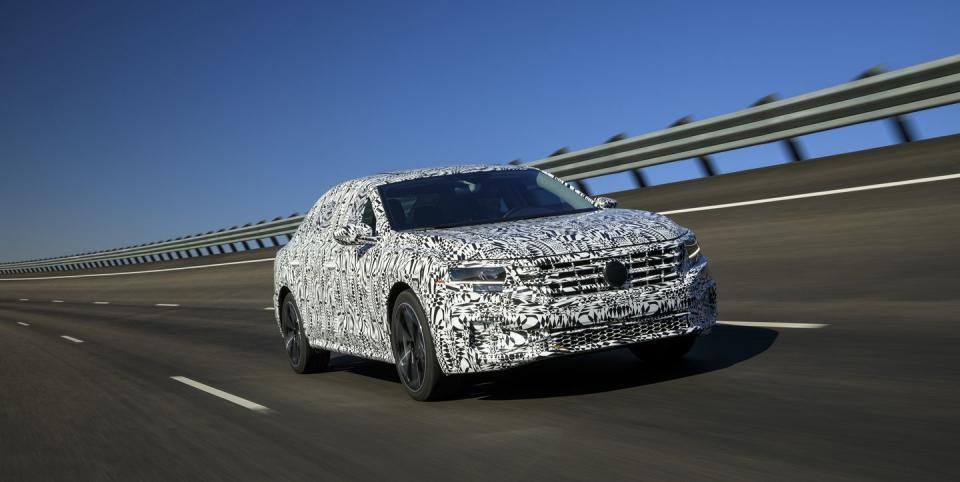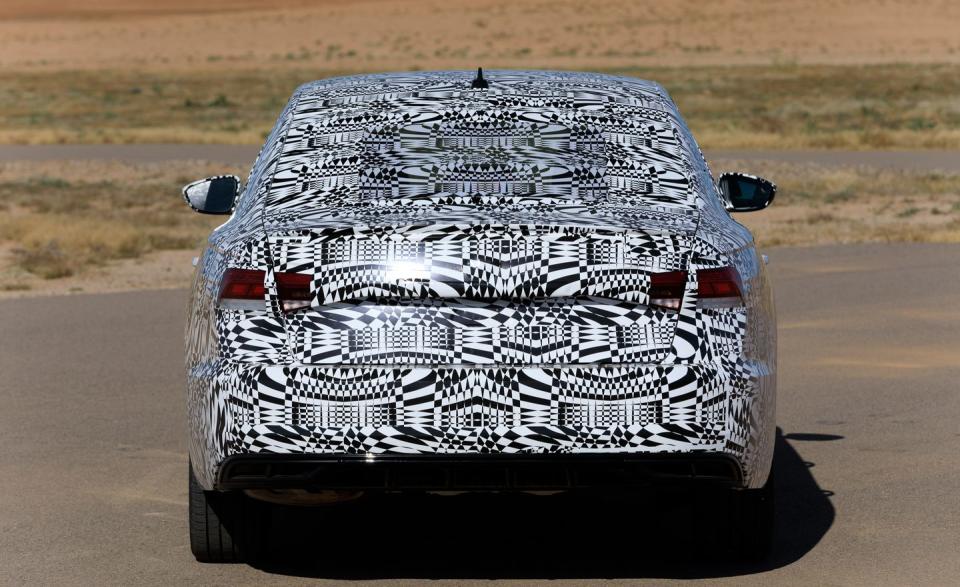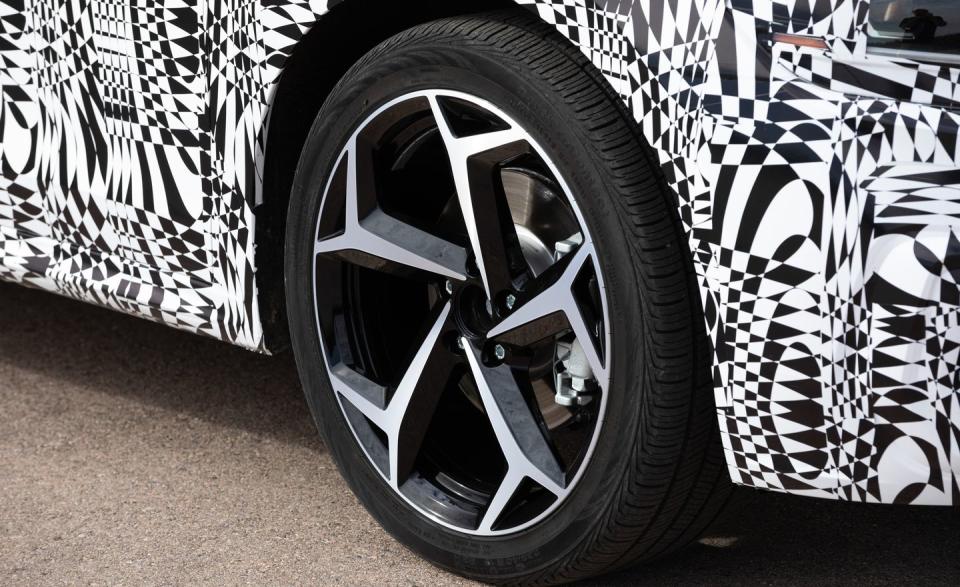The 2020 Volkswagen Passat Has Changed Too Little to Stem the Tide of Sedan Defectors

With customers fleeing mid-size sedans for crossovers and SUVs, automakers face an instinctual choice: fight or flight. Ford is choosing the latter and canceling its Fusion sedan to clear a path for more tall things. Chrysler hasn't sold a mid-size sedan since it bailed on the 200 back in 2016. Honda and Toyota, by contrast, aren't going quietly into that dark night, as evidenced by the excellent Accord and the vastly improved Camry that debuted last year. Ditto Nissan, whose Altima is the best it has been in years. And then there is Volkswagen's newest Passat which, facing a more compelling competitive set, blinks.
Instead of an all-new Passat, Volkswagen is giving us a refreshed version of the same solidly average sedan that it has sold since 2011. The 2020 Passat has a new skin and interior, but underneath it's structurally and mechanically the same as before, right down to the 110.4-inch wheelbase, the turbocharged 2.0-liter Miller-combustion-cycle-capable inline-four that was introduced for 2018, and the six-speed automatic transmission. In a brief drive around VW's Arizona proving grounds in camouflaged prototypes ahead of the car's official reveal, we experienced almost none of that surface newness and a lot of the baked-in sameness.
Why Not New?
Volkswagen insists that it can satisfy customer wants and needs using the current Passat and that there is no need to switch to the more modern, flexible MQB architecture that sits beneath nearly every other model in its U.S. lineup, from the 10Best Cars–winning Golf to the humongous Atlas three-row crossover. (The only other U.S.-market vehicles that don't use MQB components are the soon-to-die Beetle and the leftover, previous-generation Tiguan crossover still on sale-for now-as the Tiguan Limited.) We're still hung up on Volkswagen's decision way back in 2011 to split off the U.S.-market Passat from its more luxurious and upmarket European cousin(which, you guessed it, is an MQB car) in a bid for greater appeal among American consumers. Translated: The U.S.-specific Passat was cheaper to build, had a bigger back seat, and went without the Euro model's pesky overachieving excellence in favor of a lower price and higher sales volume.
Keeping that "New Mid-Size" (NMS) platform boxes the new Passat out of the more modern electronics architecture found in MQB-based VWs. We suspect that is why the 2020 Passat lacks the newest infotainment display and digital gauge cluster offered in the Golf, Jetta, and Atlas. (At least an 8.0-inch touchscreen with Apple CarPlay and Android Auto will be standard, along with forward-collision warning and blind-spot monitoring.) The NMS platform also was designed solely for front-wheel drive, meaning there won't be an all-wheel-drive option for this Passat as there is on the European model. Nothing renders Volkswagen's decision to keep the NMS more curious than the fact that the Chattanooga, Tennessee, factory where the U.S.-market Passat is built also produces the MQB-based Atlas. Our assumption is that cost played a big role in determining our Passat's redesign ambitions.
Roomy, Comfortable, Unexciting
As for those consumer wants and needs, the Passat delivers, MQB platform or no MQB platform. Buyers told VW they like the current Passat's large rear seat, commodious trunk, and quiet and comfortable ride. The preproduction 2020 cars we drove checked every one of those boxes. This Passat is basically the same size as before, which is to say huge. (Final specifications have yet to be released, but the sedan is said to be slightly longer than before, in response to safety regulations that have evolved in the past decade.) At high speeds, the cabin is quiet and the chassis is autobahn stable. We circled Volkswagen's 4.7-mile high-speed oval at an indicated 114 mph-the Passat's governed top speed-an unexciting experience owing to the car's excellent tracking.
Around VW's handling course, the Passat's behavior is stoic. Highlights include a brake pedal that works through a firm stroke and delivers linear response, a comfortable and well-isolated ride that feels more refined than before, and accurate steering. But the car is not nearly as tossable or fun as the Accord or the Camry, nor as fluid as the Mazda 6, and it never beckons the driver to push harder.
Will it matter to customers that, in 2019 going on 2020, an automatic transmission with six forward ratios is at least two short of the current zeitgeist? (The Camry has eight forward speeds, while the Accord is available with up to ten; VW’s own Jetta sports eight.) Perhaps not, although the gearbox could use better throttle tuning. Tip-in when accelerating from a rest is occasionally abrupt. Once underway, the transmission steadfastly refuses to downshift for anything short of a big throttle stomp, preferring to ride out the engine's midrange torque. Although unsatisfying, it at least is a boon for smoothness. Moving the shift lever to S forces the transmission to use lower gears, but even so, the stubborn aversion to further downshifts remains.
Our impressions of the 2020 Passat, though, come with an asterisk. Final tuning is not complete, so the sedan's personality could change somewhat by the time it goes on sale midway through 2019 (the car will be revealed early next year, likely at the Detroit auto show in January). Still, it seems unlikely that it will transform into anything beyond an unassuming, isolating commuter. The turbocharged engine's 174 horsepower is weak by the standards of today's 2.0-liter turbo fours, although VW upped peak torque from 184 to 207 lb-ft. Honda extracts 18 more ponies from the turbocharged 1.5-liter four in the base Accord and 252 from that car's uplevel 2.0-liter turbo-four. The outgoing Passat's optional 280-hp V-6 is gone.
We're Not Mad, Just Disappointed
The Passat isn't bad, but the problem is that it hasn't gotten better. A roomy interior and unassuming driving dynamics are things that used to define a competitive mid-size four-door. Today, that's what most crossover shoppers are looking for. By reskinning the same old Passat, Volkswagen isn't doing enough to stem defections to taller vehicles.
In fact, the 2020 Passat feels like a hedge, a minimal effort to maintain an entry in a dying segment. But the segment isn't dead, and if the competition of late has revealed anything, it is that successful sedans must offer style, excellence, and driving verve to give would-be crossover buyers a reason to stay with sedans. Opportunity waits for seductive offerings such as VW's own Arteon, the upcoming low-slung liftback sedan that we think this Passat should have emulated more closely.
('You Might Also Like',)

 Yahoo Autos
Yahoo Autos 



